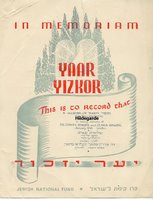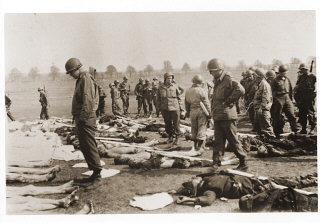About Me
Recent Entries
Archives
Blog-Related Things
Other Things
Credits

Hildegarde Rose
She arrived in England, and speaking not a word of English, made her way to her mother’s rooms in Chiswick. She knew her mother wasn’t well - it was one of the reasons that she and her sister had insisted that she make the journey to England without them. But she hadn't realised how ill her mother was. My grandmother had cancer but had hidden from her daughters how far advanced her illness was.
My mother nursed her for the next few years. There was no welfare state to look after people at that time, so my mother had to find work, which she did as a seamstress in a clothing factory.
My aunt wrote from Czeckoslovakia on a fairly regular basis and my mother would read the letters to my grandmother, but some months after the outbreak of war no more letters arrived and my mother feared for her sister and her family. Because her mother was dying, she continued to pretend that letters were arriving and she would read made up greetings from her sister to her mother until my grandmother’s death.
It wasn’t until the Russians liberated the Auschwitz concentration camp in 1945 that my mother knew what had happened to her sister. She and the rest of her family had died of typhoid and dysentery.

By the end of the war my mother found that she had no family left. All aunts, uncles, cousins were gone. Though she wasn't a Zionist, the only way she could commemorate their lives was to plant trees for them in the newly formed Jewish state of Israel.
Liberation
When the Soviet army reached Auschwitz in January 1945 it found only 7,000 inmates.
Nearly 60,000 had been forced to march west in freezing conditions. Those who collapsed or fell behind were shot. In all, some 15,000 died on the death march.
A Soviet soldier described the inmates as "skin and bones", louse-infested and barely able to stand. "Some were crying, some were laughing," he added. "Some tried to kiss us, but it was uncomfortable - you didn't want to get infected".

The things I saw beggar description... The visual evidence and the verbal testimony of starvation, cruelty and bestiality were...overpowering... I made the visit deliberately in order to be in a position to give first-hand evidence of these things if ever, in the future, there develops a tendency to charge these allegations merely to 'propaganda.'
Source: General Dwight D. Eisenhower's letter to General George C. Marshall dated April 15, 1945.